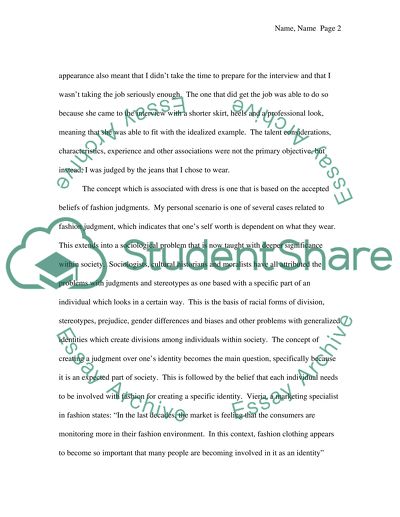Cite this document
(“How People Dress Affects Their Lives Essay Example | Topics and Well Written Essays - 1750 words”, n.d.)
Retrieved from https://studentshare.org/english/1423875-how-people-dress-affects-their-lives
Retrieved from https://studentshare.org/english/1423875-how-people-dress-affects-their-lives
(How People Dress Affects Their Lives Essay Example | Topics and Well Written Essays - 1750 Words)
https://studentshare.org/english/1423875-how-people-dress-affects-their-lives.
https://studentshare.org/english/1423875-how-people-dress-affects-their-lives.
“How People Dress Affects Their Lives Essay Example | Topics and Well Written Essays - 1750 Words”, n.d. https://studentshare.org/english/1423875-how-people-dress-affects-their-lives.


